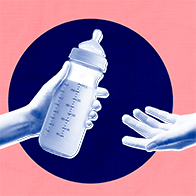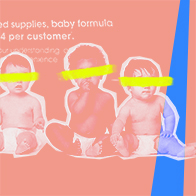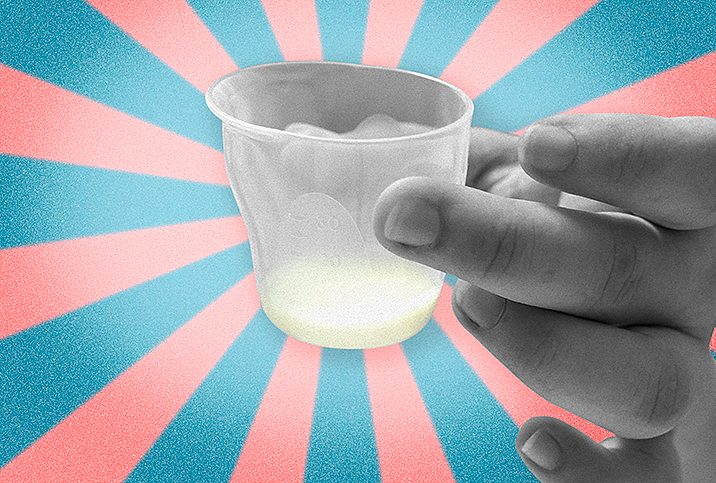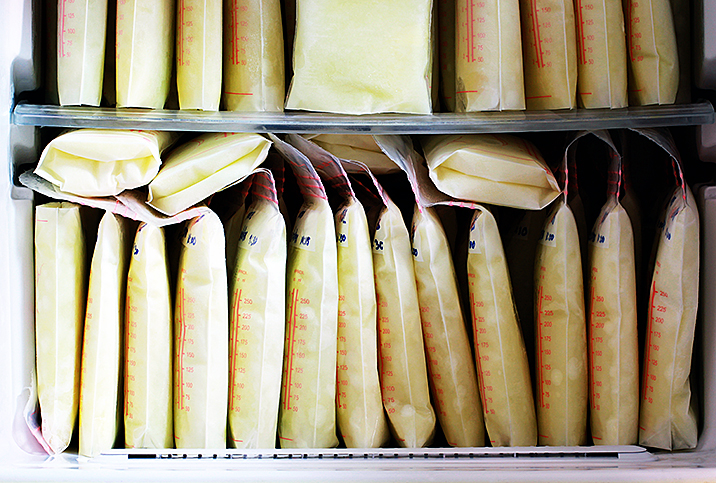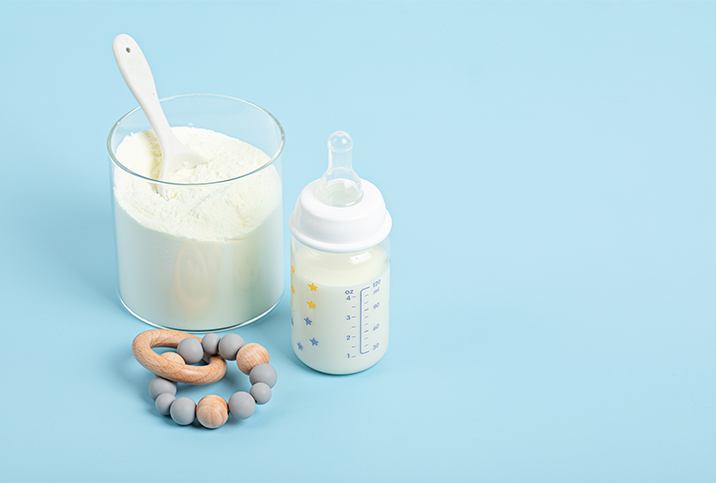Can I Freeze-Dry Breast Milk?
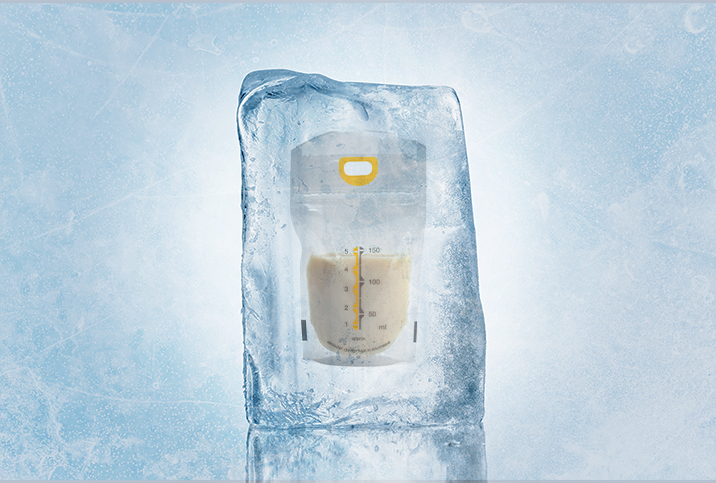
Parents who want to store and preserve breast milk may have a new option: freeze drying breast milk. This new way to store human milk (and retain its nutritional content) could offer several potential benefits. Let's take a look.
How does freeze-drying breast milk work?
Freeze-drying removes water from frozen materials by turning ice to vapor. When you freeze-dry breast milk, it transforms frozen milk or milk powder (like formula) that is safe to use for up to three years and is easier to store because it requires no refrigeration. Current methods aren't quite so long-term.
Breast milk has a short shelf-life. It's only good for up to four hours at room temperature (77degrees or colder). Breast milk can last up to four days in the refrigerator and up to 12 months in the freezer before turning bad. However, it's best to use human milk within six months for quality purposes, according to the Centers for Disease Control and Prevention (CDC).
The technology for freeze-drying breast milk was first developed for milk banks that supply newborn intensive care units (NICUs), where storing fresh or frozen milk is challenging, especially if large-scale freezers aren't available. Freeze-drying removes the need for freezing or even cooling, creating a safe and stable way to store milk.
Drawing on this work, companies such as Milkify, based in Texas, are now offering the service to consumers.
Why would you freeze-dry breast milk?
There are many reasons why someone would want to consider this method of saving breast milk.
Founder Berkley Luck was inspired when she saw colleagues struggling with pumping and storing milk at work. "I had used freeze-drying technology in my Ph.D. research before and saw its potential as a better way for moms to store, use and transport their milk," Luck said. "When I looked into the research, it turned out researchers and milk banks in other countries had already been doing this for decades."
As well as prolonging the life of the breast milk, freeze-dried breast milk powder can be easier to use than frozen milk.
There is now more evidence and research than ever to support freeze-drying milk.
Speed and convenience is a factor. "Rather than waiting for frozen milk to thaw, you simply add water to the freeze-dried breast milk powder to make a bottle," Luck explained. So, too, is not having to deal with freeing up freezer space in your deep freeze.
Traveling is also easier because dehydrated breast milk weighs less than frozen milk and does not need to stay frozen in transit.
The technology can be useful for many families, said Aimee Eyvazzadeh, M.D., a fertility specialist in California and chief medical advisor at Proov, a fertility hormone testing company.
"I have heard story after story from my patients, upset that they lost all their frozen milk from a power outage," Eyvazzadeh said. "Freeze-drying milk for my patients offers a solution in which they would freeze and ship and then get freeze-dried milk that they don't have to worry about keeping frozen.
"There is now more evidence and research than ever to support freeze-drying milk," she continued. "With newer technology and commercialization of this process, it seems to be a good idea for parents who wish to preserve their milk longer."
Is freeze-drying breast milk safe?
You want to know you are providing adequate nutrition for baby. Unlike old-fashioned breast milk freezing and storage, this method can help ease your safety concerns. "Freeze-drying done properly doesn't negatively affect the nutritional quality of milk," Eyvazzadeh said.
A 2017 study in Argentina looked at breast milk before and after freeze-drying and found comparable levels of proteins, glucose, triglycerides, polyphenols and other oxidation products, she explained. The nutritional properties don't appear to be adversely affected when undergoing the freeze-drying process for breast milk.
A 2020 study in Korea "shows that freeze-drying milk did not affect human milk glycoproteins, providing further evidence about the benefits of this option for parents," Eyvazzadeh said. Research from Korea in 2019 suggested human milk oligosaccharides (a type of carbohydrate) are not affected by freeze-drying, either.
Some research has found the process to be better at preserving nutrients than at-home freezing.
"The study from 2017 showed that freeze-drying milk was better than regular freezing," Eyvazzadeh said.
Luck explained that with standard freezing, breast milk naturally degrades in quality and taste over time—in some cases, expiring in as little as three to six months—while freeze-drying stops the clock on the nutrient degradation that naturally happens to frozen breast milk.
It is completely safe to freeze-dry breast milk if done properly. Look into how a company handles the freeze drying process. How do they ensure safety of your 'liquid gold?'
"It is important to research the company you're using and make sure that the process is safe, wholesome and meets industry standards," Eyvazzadeh added.
Milkify freeze-dries breast milk in individual sterile pouches, which protects it and allows water vapor to escape while the milk is still frozen. It turns into a powdered form.
"With our process, breast milk never touches any of our equipment. Packaging is done by trained professionals in a clean room, and we follow the latest GMP [good manufacturing practice] standards promoted by the FDA [Food and Drug Administration]," Luck said.
However, Luck warned that some people are advertising freeze-drying services without these safety precautions. She echoed Eyvazzadeh's advice to research any provider and ask about quality controls, facility setup and safety protocols.
What happens when you freeze-dry breast milk?
"When frozen at low temperatures and exposed to radiant heat at low pressures, ice water does not melt, it sublimates. This means it goes directly from a solid to gas; in other words, ice turns to vapor without thawing or melting," Luck explained. "When a frozen food thaws, it is damaged at the cellular level by melting ice crystals. By skipping the thawing step, freeze-drying removes water while leaving the molecular structure of the food intact."
If you want to try a freeze-drying company, the process is fairly simple: You are sent a shipping kit in which you pack and send back your frozen milk. Your freeze dried breast milk shipper freeze-dries your milk and returns milk powder in pouches for you to make into milk when you need it.
Cost is a key factor, especially when compared to the low costs of traditional freezing at home. Freeze-drying is labor-intensive and requires specialized equipment to turn milk into powder. As of this writing, Milkify charges $1.62 an ounce plus shipping. If you have large quantities of milk, it may help you hang onto more ounces of milk than you could otherwise.
As the option to freeze-dry breast milk becomes more popular, costs are likely to go down.
The bottom line
I once spilled a whole bottle of precious breast milk over my kitchen counter. They say, "Don't cry over spilled milk," but in the case of pumped breast milk, the tears are justified. The last thing you want after all your effort is your breast milk going to waste.
Freeze-drying won't suit everyone, but if security around your supply is a priority, it could be a good way to help minimize your concerns about breast milk turning bad. It might help (freeze-) dry a few tears over lost milk in years to come.







